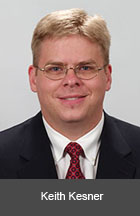by John Sponauer (’92, ‘10), from the UConn Foundation’s Our Moment newsletter, November-December 2012
 Keith Kesner (B.S. Civil Engineering,’92) knows firsthand how difficult it is for students to afford college. As an undergraduate, he worked multiple construction jobs over the course of a summer to pay for the coming year at UConn.
Keith Kesner (B.S. Civil Engineering,’92) knows firsthand how difficult it is for students to afford college. As an undergraduate, he worked multiple construction jobs over the course of a summer to pay for the coming year at UConn.
“My parents didn’t have the money to afford college for me,” he recalls. “Luckily, I was able to earn the money myself, but it’s a completely different world today. I doubt I could do that now; I just wouldn’t make the kind of money in a summer that would allow me to cover two semesters of school.”
An associate with the South Norwalk engineering firm Whitlock Dalrymple Poston and Associates, Kesner is giving back to support today’s UConn students through a named scholarship in structural engineering.
He was at least partially influenced to give back through the actions of a high school classmate, Chuck Stietzel (’91, ’93), who donated earlier this year, also to support the School of Engineering (Related story: “Engineering Alum Pays It Back, and Forward”).
“Chuck was a year or two ahead of me in school, but even then, he struck me as someone who had his stuff together. When I read that he had donated, I thought, ‘Well, I should do that too.’”
From completing durability evaluations on major bridge structures to studying building collapses, Kesner revels in the challenging and interesting career he has chosen, and says UConn prepared him well.
“I feel like the University did a very good job of educating me, and not just in the traditional engineering skills. For example, I learned to write well at UConn, something that engineers need to be able to do if they hope to advance,” he adds. “There are a lot of engineers who sit in the back room crunching numbers. But the ones who are leading their companies need to know how to write and communicate effectively.”
He not only maintains many close friendships that he established at UConn, but has also remained in touch with some faculty members as well, offering guidance and insight into industry trends.
He says that he wants his giving to make a difference for engineering students today, as well as for the future of the field.
“I know that for many students, getting just a little financial help may make the difference between going to school or not going. For others, it may be the difference between really struggling to make it each semester. That’s how it was for me,” he says. “I think that when you’ve had some success, you look back and realize you have something you can pass on as a kind of recognition of how you got to where you are. And, of course, I hope that I can help support the next generation of engineers to be the kind of professionals we need.”



